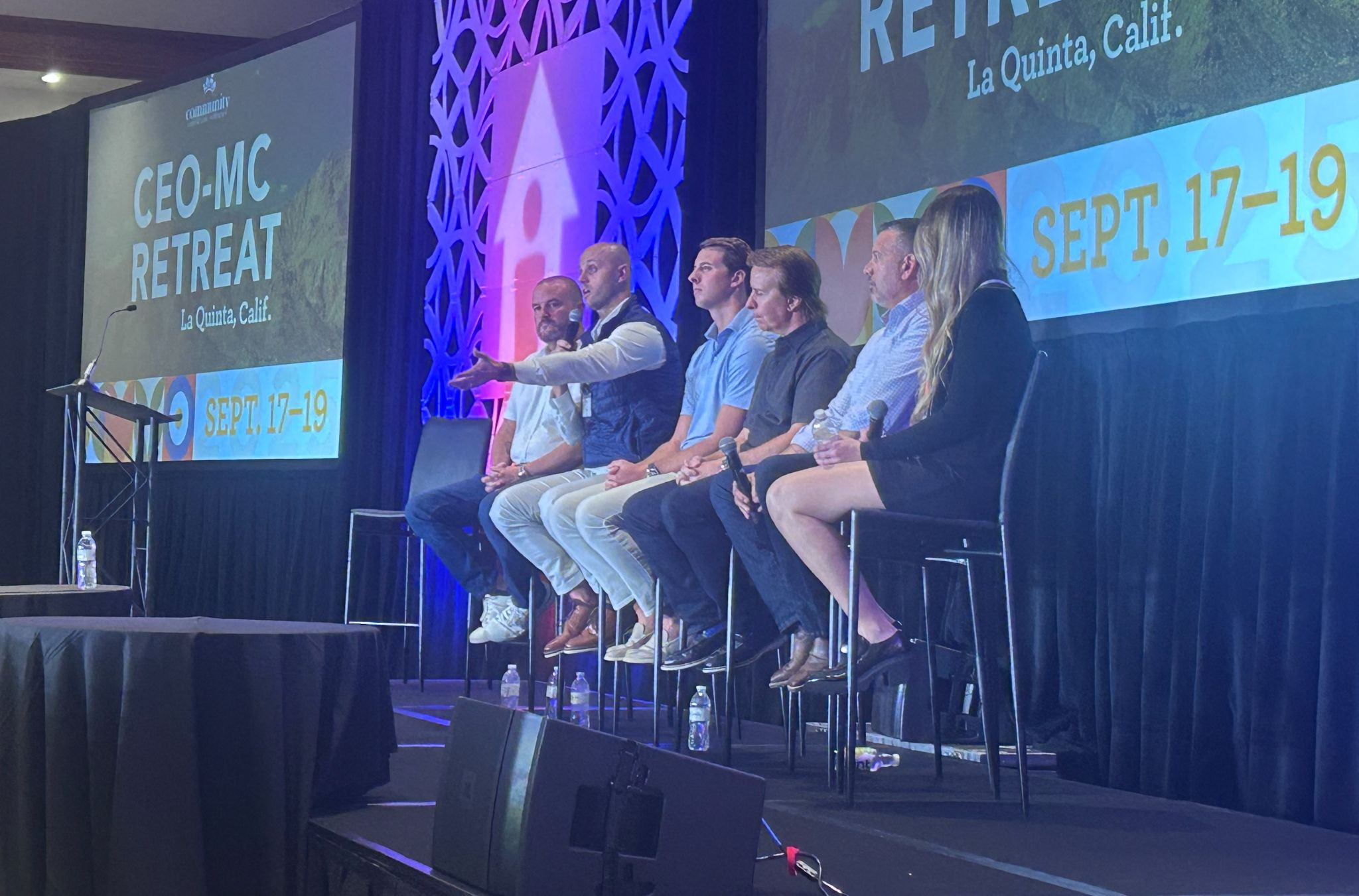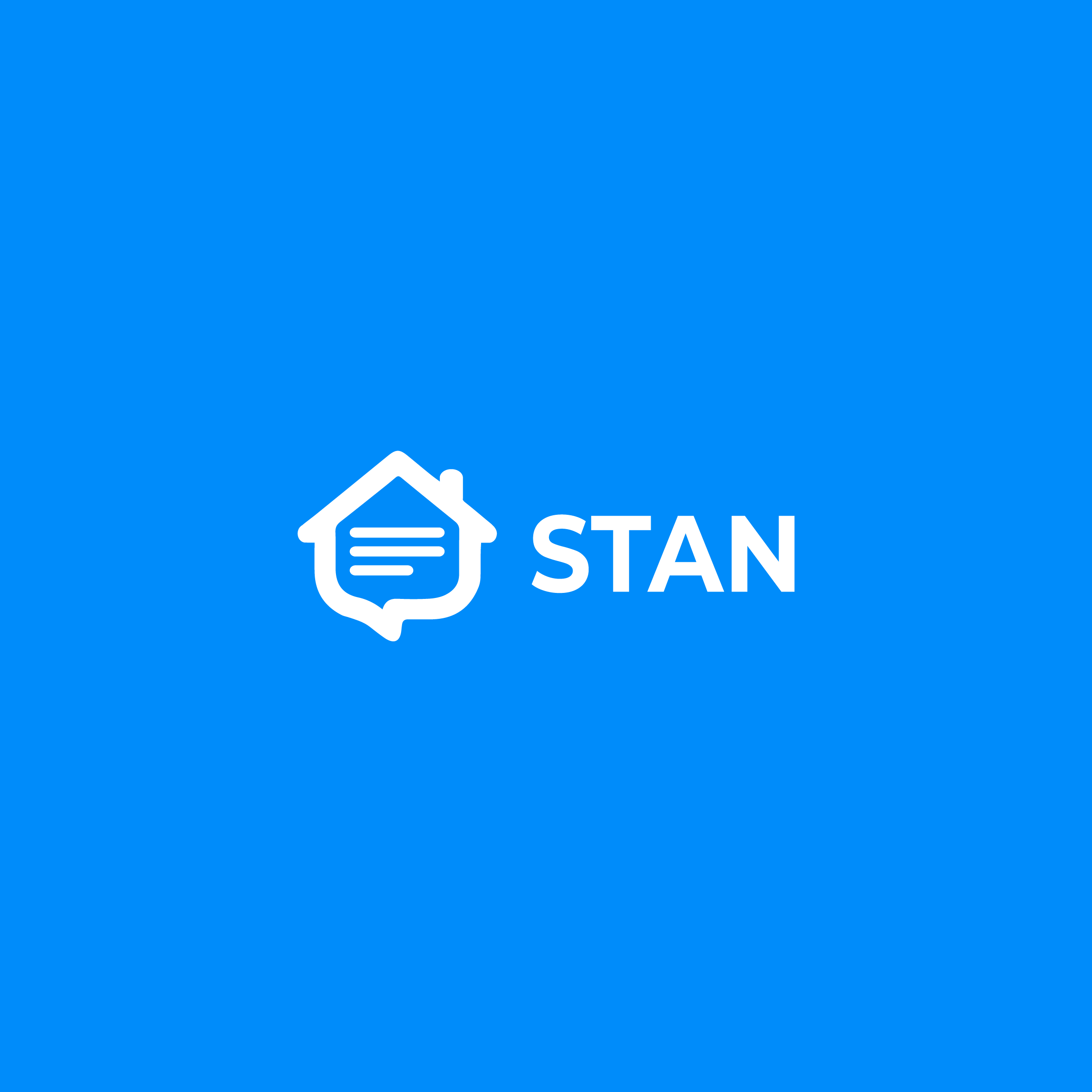We had a fantastic time last week in La Quinta at the Community Associations Institute's CEO-MC Retreat. It was a privilege for our co-founder, Max Gajdel, to join an incredible group of experts on Friday for the general session, "Practical AI Applications". The session, expertly moderated by Denise Haas of Five Keys, moved beyond the theoretical hype of AI and dug into the concrete, real-world applications that management companies can implement today.
The format of rapid-fire micro-presentations followed by an interactive Q&A sparked a dynamic and insightful conversation. For those who couldn't be there, we wanted to share a few highlights from the discussion. The central theme of our conversation was navigating the next wave of technological evolution, particularly the role of AI in shaping how we manage communities, engage with residents, and build more efficient, people-focused organizations.

Highlights from the Panel
The discussion was dynamic, with each panelist bringing a unique and valuable perspective to the table.
Shea Dittrich from CINC Systems kicked off the panel by framing AI not just as an efficiency tool, but as a way to enable “the more”. He described this as freeing managers from tedious tasks to provide more support and engagement for residents. Shea shared his excitement that the industry is “out in front” with AI, building tools poised to help millions of homeowners love being part of their professionally managed community.
Building on Shea’s vision of enabling “the more”, our co-founder, Max Gajdel, took the stage to demonstrate how specialized AI makes this a reality. He provided a look inside STAN, explaining how the platform can be used to automate entire custom workflows while also offering the flexibility of an AI agent—a 'digital employee'—that can execute specific tasks on demand. His presentation highlighted how this level of flexible automation provides a comprehensive toolkit to handle the full spectrum of a manager's workload, from automating the predictable workflows to completing the one-off tasks.
Ben Currin from Vantaca, drove home the point that AI isn’t just a future theory; it’s actively transforming community management today. He shared real-world examples of how managers are deploying and utilizing AI-powered solutions that deliver tangible results for management companies right now. His presentation gave a clear "before and after" look at this transformation, a topic we've detailed in our post, "The Evolution of HOA Management."
Shifting to a critical topic, Gar Liebler of TechCollect discussed AI data compliance. He introduced TechCollect's new compliance tool, which ingeniously prevents confidential HOA data from being exposed to third-party LLMs. Gar explained that if a user accidentally tries to upload a sensitive document, the tool stops the process entirely, ensuring data leaks are prevented and resident information remains secure.
Finally, Jennifer Booth from K&K Property Management provided powerful insights from the front lines. She shared her experience implementing AI, stressing how it has allowed her to create a "digital version of herself." This digital assistant now handles the repetitive, easy tasks, which alleviates her workload and frees up her time and energy to focus on the more important, high-touch aspects of community management.
Key Takeaways from the Discussion
Beyond the fantastic individual presentations, the Q&A session revealed several powerful themes that resonated with the audience. The entire conversation can be distilled into three core takeaways for any leader in the community management space.
1. AI is More Than a Tool, It's a Digital Employee
A central theme was that AI's true value comes from addressing the specific pain points community managers face daily. The most powerful descriptions highlighted the need for AI that creates a "digital version" of a manager to handle repetitive tasks. This idea resonated deeply, showing the industry's demand for AI that is specifically trained for property management scenarios. The conversation made it clear that the focus is shifting away from generic tools and toward these purpose-built solutions. By handling the communication overload that buries managers and diverting a significant portion of routine inquiries, this specialized approach can maintain a high level of service while preserving the personal touch residents expect. It's not about replacing managers; it's about giving them back the time to focus on building community relationships and strategic oversight.
2. Generic AI is Useless; Effective AI is Community-Specific
The conversation drove home a critical point: for AI to be trustworthy, it must be an expert on your community. A generic chatbot can’t tell a resident why their specific fence request was denied or what their current account balance is. As showcased by Max, the breakthrough is AI that connects to and ingests a community's unique governing documents, bylaws, and operational rules. This allows the AI to move beyond answering simple questions to executing complex, multi-step tasks. For instance, when a resident reports a leak, the AI can check their unit's maintenance history, consult the bylaws to determine financial responsibility, automatically generate a work order with an approved vendor, and then inform the resident of the complete action plan—all in a single interaction. This is the kind of precision and value that only community-specific intelligence can deliver.
3. A Secure AI Must be a Private, Closed-Loop System
The discussion sparked a crucial conversation about data compliance and security. The panel firmly agreed on a key rule: using public AI models for sensitive resident data is very risky. Instead, any AI strategy must use a private, "closed-loop" system. This means the AI is designed to use your community's specific information only for your benefit, without sharing that data or using it to train its third-party public models. This is the essential difference between a secure business tool and a public one, and it's the only way to ensure resident and business information remains confidential.
What This Means for the Industry
The conversation at the CEO-MC Retreat was a clear signal of a fundamental shift. The era of the manager being buried under a mountain of routine emails is ending, not because of generic AI, but because purpose-built solutions are finally providing real communication relief. The future is a partnership where an AI "digital employee" handles the repetitive administrative tasks, freeing the manager to operate as a true community leader focused on strategic oversight, board guidance, and resident experience.
The Path Forward: Embracing an AI-Powered Future
We left the CEO-MC Retreat feeling inspired. The discussions confirmed that our industry is actively shaping a future where managers are empowered, not replaced. This vision is being realized through specialized tools that act as a true digital partner, elevating the role of the manager and delivering an unparalleled experience for homeowners. This future is built on the three pillars our panel explored: specialized function, community-specific intelligence, and ironclad security.
A huge thank you to the Community Associations Institute for hosting a phenomenal event, to Denise Haas for guiding the conversation, and to our fellow panelists for sharing their invaluable insights.
The journey into specialized AI is just beginning. To understand where the industry currently stands and where it's headed, we invite you to read our in-depth report.
Read the full results of our AI Adoption Survey here.

%20(1).png)
.png)

%20(2).png)
